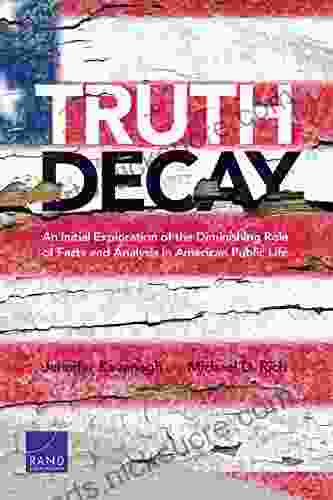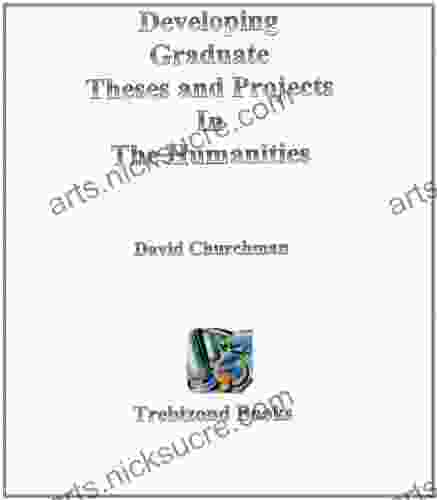Developing Graduate Theses and Projects in the Humanities: A Comprehensive Guide to Success

Embarking on a graduate thesis or project in the humanities can be an enriching yet daunting endeavor. With the stakes high and expectations soaring, it is crucial to approach this undertaking with a well-informed and strategic plan. This comprehensive guide will provide an in-depth exploration of the key stages involved in developing successful graduate theses and projects in the humanities, empowering you to navigate this academic journey with confidence and achieve exceptional outcomes.
The cornerstone of any graduate thesis or project is a well-defined research topic. Choosing a topic that ignites your intellectual curiosity, aligns with your interests, and offers ample scope for exploration is paramount. Here are some strategies to consider:
Consult with your advisor: Seek guidance from your faculty advisor who can provide valuable insights into potential research areas and help you narrow down your focus.
Developing Graduate Theses and Projects in the Humanitiesby David Churchman4.3 out of 5
Language : English File size : 204 KB Text-to-Speech : Enabled Screen Reader : Supported Enhanced typesetting : Enabled Print length : 126 pages Lending : Enabled Explore existing literature: Conduct a thorough literature review to identify gaps in knowledge, emerging trends, and unexplored aspects within your chosen field.
Consider your skills and interests: Choose a topic that leverages your strengths and allows you to showcase your analytical, critical thinking, and writing abilities.
Ensure feasibility: Assess the feasibility of your proposed research project. Are the necessary resources, data, and support available to successfully complete the project?
Once you have identified a research topic, the next step is to develop a compelling research proposal. This document outlines the purpose, significance, methodology, and expected outcomes of your project. A well-crafted research proposal is essential for securing funding, gaining institutional approval, and setting the stage for a successful thesis or project.
State your research question or hypothesis: Clearly articulate the specific question or hypothesis that your research will address.
Provide a literature review: Summarize the relevant literature that supports your research question or hypothesis and highlights the gap in knowledge that your project aims to fill.
Describe your research methodology: Outline the methods you will employ to collect and analyze data, ensuring they are appropriate for your research question and topic.
Explain the significance of your research: Describe how your project contributes to the advancement of knowledge and its potential impact on your field.
Set realistic goals and timelines: Establish clear goals and a realistic timeline for completing your project.
With your research proposal approved, the next phase involves conducting thorough and rigorous research. This may involve gathering data, analyzing sources, conducting experiments, or undertaking fieldwork, depending on the nature of your project.
Organize your research process: Establish a systematic approach to gathering and organizing your research materials, ensuring efficient and effective data management.
Critically evaluate sources: Scrutinize the credibility, reliability, and relevance of all sources used in your research, ensuring that they meet academic standards.
Document your research: Maintain meticulous records of your research process, including notes, citations, and data analysis, to ensure transparency and accuracy.
Seek feedback and support: Regularly consult with your advisor and other experts in your field to obtain feedback, validate your findings, and address any emerging challenges.
The culmination of your graduate research is the thesis or project itself. This written document showcases your research findings, analysis, and s. Adhering to the accepted academic writing conventions and formatting guidelines is crucial for success.
Structure your thesis or project: Organize your written work into a clear and logical structure, typically comprising an , literature review, research methods, results, discussion, and .
Present your findings clearly: Describe your research findings in a concise and compelling manner, using appropriate tables, figures, and supplementary materials to support your arguments.
Analyze and interpret your results: Discuss the implications of your findings, draw connections to existing literature, and articulate your own original insights and interpretations.
Write clearly and persuasively: Use precise and academic language, ensuring your writing is clear, concise, and persuasive, effectively engaging the reader and conveying your research outcomes.
Proofread and edit: Carefully proofread and edit your thesis or project to eliminate errors and ensure a polished, professional presentation.
The final stage of the graduate thesis or project is its defense, where you present your research findings to a committee of experts. This is an opportunity to demonstrate your mastery of the subject matter, the rigor of your research, and your ability to articulate your ideas effectively.
Prepare for the defense: Practice your presentation thoroughly, anticipate potential questions, and gather supporting materials to enhance your defense.
Present your research: Deliver a clear and engaging presentation that concisely summarizes your research question, methodology, findings, and s.
Respond to questions: Answer questions posed by the committee thoughtfully and professionally, providing evidence and rationale to support your arguments.
Incorporate feedback: Listen attentively to the feedback provided by the committee and be open to constructive criticism, as it can help you refine your research and improve your overall presentation.
Developing a successful graduate thesis or project in the humanities requires a combination of intellectual curiosity, meticulous research, exceptional writing skills, and effective presentation abilities. By following the steps outlined in this comprehensive guide, you can navigate this academic journey with confidence, produce a high-quality thesis or project, and contribute meaningfully to the advancement of knowledge in your chosen field. Remember, the completion of a graduate thesis or project is a testament to your perseverance, critical thinking, and ability to conduct original research, opening doors to a world of opportunities in academia, research, and beyond.
4.3 out of 5
| Language | : | English |
| File size | : | 204 KB |
| Text-to-Speech | : | Enabled |
| Screen Reader | : | Supported |
| Enhanced typesetting | : | Enabled |
| Print length | : | 126 pages |
| Lending | : | Enabled |
Do you want to contribute by writing guest posts on this blog?
Please contact us and send us a resume of previous articles that you have written.
 Fiction
Fiction Non Fiction
Non Fiction Romance
Romance Mystery
Mystery Thriller
Thriller SciFi
SciFi Fantasy
Fantasy Horror
Horror Biography
Biography Selfhelp
Selfhelp Business
Business History
History Classics
Classics Poetry
Poetry Childrens
Childrens Young Adult
Young Adult Educational
Educational Cooking
Cooking Travel
Travel Lifestyle
Lifestyle Spirituality
Spirituality Health
Health Fitness
Fitness Technology
Technology Science
Science Arts
Arts Crafts
Crafts DIY
DIY Gardening
Gardening Petcare
Petcare Michael D Rich
Michael D Rich Sergei Urban
Sergei Urban Agnes Light
Agnes Light Adrienne Engleman Pga Fellow Professional
Adrienne Engleman Pga Fellow Professional Jasmine Taylor
Jasmine Taylor Noah Michaud
Noah Michaud Colin Pask
Colin Pask Gary Dean Quesenberry
Gary Dean Quesenberry Bobbie Ziemer
Bobbie Ziemer Adam Stevenson
Adam Stevenson Eric Hoffer
Eric Hoffer Heidi Dusek
Heidi Dusek Jenny Jones
Jenny Jones Adrian Bardon
Adrian Bardon Sarah Stillman
Sarah Stillman Adiba Jaigirdar
Adiba Jaigirdar David Graeber
David Graeber Mel Levine
Mel Levine Dagogo Altraide
Dagogo Altraide Adam Rutherford Phd
Adam Rutherford Phd Kathryn Casey
Kathryn Casey John North
John North Andres Mooring
Andres Mooring Rick Sapp
Rick Sapp Daniel Sobieck
Daniel Sobieck Balazs Csigi
Balazs Csigi Adele Faber
Adele Faber Robin Suerig Holleran
Robin Suerig Holleran George A Morgan
George A Morgan Martin Dorey
Martin Dorey Kirsten Watson
Kirsten Watson Jacqueline Houtman
Jacqueline Houtman Wayne Curtis
Wayne Curtis Renato Rosaldo
Renato Rosaldo Andrea Huneeus Vergara
Andrea Huneeus Vergara Team Golfwell
Team Golfwell John Nero
John Nero Asrai Devin
Asrai Devin Deborah Grace White
Deborah Grace White Tessa Bielecki
Tessa Bielecki Karl Sigmund
Karl Sigmund David A Whitsett
David A Whitsett Robin Jones Gunn
Robin Jones Gunn Laura Zinn Fromm
Laura Zinn Fromm Brad Borkan
Brad Borkan Debra D Sullivan
Debra D Sullivan Supana Onikage
Supana Onikage Melinda Folse
Melinda Folse Simon Needham
Simon Needham Avner Ash
Avner Ash Danny Wuerffel
Danny Wuerffel Marty Ofonagoro
Marty Ofonagoro Joe Varady
Joe Varady Heather Worthington
Heather Worthington Stephen Brennan
Stephen Brennan Sam Fadala
Sam Fadala Paul Parker
Paul Parker Ken Dehart
Ken Dehart Jacqueline Winspear
Jacqueline Winspear Rod Heckelman
Rod Heckelman James B Marsh
James B Marsh Andrea Ros
Andrea Ros Sarah Clarkson
Sarah Clarkson John Graves
John Graves M Barlow Pepin
M Barlow Pepin P Brian Noble
P Brian Noble Kate Wickers
Kate Wickers Michele Angello
Michele Angello Nancy Mellon
Nancy Mellon Christopher Pike
Christopher Pike Marie Colvin
Marie Colvin John Feinstein
John Feinstein Kosol Ouch
Kosol Ouch Slavka Bodic
Slavka Bodic Jose Antonio Fernandez
Jose Antonio Fernandez Letitia Baldrige
Letitia Baldrige Taylor Markarian
Taylor Markarian Brian J Lang
Brian J Lang Alisscia B
Alisscia B Fergus Connolly
Fergus Connolly Zoe Clark Coates
Zoe Clark Coates Thomas Pranio
Thomas Pranio Herb Carnegie
Herb Carnegie Joanna Warrington
Joanna Warrington D J Conway
D J Conway George Yule
George Yule Michael J Domitrz
Michael J Domitrz Gena Showalter
Gena Showalter Yuu Tanaka
Yuu Tanaka Adrian Bejan
Adrian Bejan Harry Pearson
Harry Pearson Bruce Hood
Bruce Hood Joan Naidorf
Joan Naidorf Yusra Mardini
Yusra Mardini Ed Hanczaryk
Ed Hanczaryk Cameo Renae
Cameo Renae Master Sajid Ahmed
Master Sajid Ahmed Todd Whitaker
Todd Whitaker Adrian Smith
Adrian Smith Cindy Nana Parente
Cindy Nana Parente David Mcraney
David Mcraney Archie Brain
Archie Brain Kenneth Martz
Kenneth Martz Sherrie Nist Olejnik
Sherrie Nist Olejnik Johnathon Allen
Johnathon Allen Don Nehlen
Don Nehlen Mary Roach
Mary Roach Lisa Mosconi
Lisa Mosconi Adriana Rabinovich
Adriana Rabinovich Patrick Hutchinson
Patrick Hutchinson Tom Ryan
Tom Ryan Adrienne Young
Adrienne Young Nomi Prins
Nomi Prins Eric Adelson
Eric Adelson Ken Robinson
Ken Robinson Leckie
Leckie Helen Xander
Helen Xander Shmuel Goldberg
Shmuel Goldberg Natania Barron
Natania Barron Adrian May
Adrian May Stephen John Peel
Stephen John Peel Philip Gardiner
Philip Gardiner Stephen Tignor
Stephen Tignor Rebecca Lowe
Rebecca Lowe Brad Rock
Brad Rock Barry Melrose
Barry Melrose Jess Thomson
Jess Thomson Adrian Lobley
Adrian Lobley Leslie T Chang
Leslie T Chang Shami Stovall
Shami Stovall Brian K Jones
Brian K Jones Adrian Wilson
Adrian Wilson Si Robertson
Si Robertson Ben Marcus
Ben Marcus Meganne Forbes
Meganne Forbes Joe Posnanski
Joe Posnanski Dwayne Bryant
Dwayne Bryant Frederick J Gravetter
Frederick J Gravetter Adam Pertman
Adam Pertman Malachi Martin
Malachi Martin Jo Deurbrouck
Jo Deurbrouck Marc Roche
Marc Roche Elias Johnson
Elias Johnson Marta Alexander
Marta Alexander Liao Yiwu
Liao Yiwu Zainab Yate
Zainab Yate Bridget Bishop
Bridget Bishop Collins Easy Learning
Collins Easy Learning Aftab Hamid
Aftab Hamid Carl Johan Calleman
Carl Johan Calleman Jay Mcgraw
Jay Mcgraw Doris J Barnes
Doris J Barnes Susy Lee
Susy Lee Frans X Plooij
Frans X Plooij Ashley Bugge
Ashley Bugge Max Jammer
Max Jammer Rusty Richards
Rusty Richards Carol Grbich
Carol Grbich David Sloan Wilson
David Sloan Wilson Ari Marmell
Ari Marmell Jordan Bone
Jordan Bone Issendai Bechau
Issendai Bechau Mike Jacker
Mike Jacker Adib Khorram
Adib Khorram Charles R Swindoll
Charles R Swindoll C K Murray
C K Murray Max Mason
Max Mason Terri Paajanen
Terri Paajanen Dennis Cassinelli
Dennis Cassinelli Peter L Bernstein
Peter L Bernstein Aubre Tompkins Cnm
Aubre Tompkins Cnm William Smith
William Smith Noson S Yanofsky
Noson S Yanofsky Bonnie Raingruber
Bonnie Raingruber Jonathan Kozol
Jonathan Kozol Pete Jordan
Pete Jordan Hannes Wessels
Hannes Wessels Tony Herman
Tony Herman Marcus Heerdt
Marcus Heerdt S Yates
S Yates John Hillman
John Hillman Kathy A Zahler
Kathy A Zahler Anita Shreve
Anita Shreve Gianni Filippini
Gianni Filippini Alexi Pappas
Alexi Pappas Nelson L Schuman
Nelson L Schuman Jason Browne
Jason Browne Melvin Konner
Melvin Konner Rich Froning
Rich Froning Bryan Willis
Bryan Willis Ken Jeremiah
Ken Jeremiah Tommy Caldwell
Tommy Caldwell Bettina Elias Siegel
Bettina Elias Siegel Michael Bronski
Michael Bronski Katarzyna Wac
Katarzyna Wac Susan Rovezzi Carroll
Susan Rovezzi Carroll Ahmad Al Sukaini
Ahmad Al Sukaini Gary Lonesborough
Gary Lonesborough Marta Szabo
Marta Szabo Adrienne Rawlinson
Adrienne Rawlinson Kara Powell
Kara Powell Charles D Amico
Charles D Amico Paul L Wachtel
Paul L Wachtel Lindsay Burton
Lindsay Burton Mary Ann Drummond
Mary Ann Drummond Nastassja Martin
Nastassja Martin Duffy Gaver
Duffy Gaver Ron Elbe
Ron Elbe Alex Tremm
Alex Tremm Jake Schafft
Jake Schafft Kieran Higgins
Kieran Higgins Dale F Bloom
Dale F Bloom Fred Luskin
Fred Luskin Paul Weamer
Paul Weamer Melanie Mitchell
Melanie Mitchell Sun Yung Shin
Sun Yung Shin Alicia Young
Alicia Young Herbert Clyde Lewis
Herbert Clyde Lewis Adrian Wells
Adrian Wells Nicole Bailey
Nicole Bailey Hans Reichenbach
Hans Reichenbach Kevin J Cheek
Kevin J Cheek Joanne Jamrosz
Joanne Jamrosz Helen Scheuerer
Helen Scheuerer Timothy J Baroni
Timothy J Baroni Sylvia Nasar
Sylvia Nasar Dr Paul Lam
Dr Paul Lam Jeff Wiltse
Jeff Wiltse Adam Woodbeck
Adam Woodbeck Dorothy Hamill
Dorothy Hamill Kevin Greene
Kevin Greene Karen Weekly
Karen Weekly Gina Fava
Gina Fava Adrienne Mayor
Adrienne Mayor Paul Embrechts
Paul Embrechts Adharanand Finn
Adharanand Finn Monique Boutsiv
Monique Boutsiv Lily Luchesi
Lily Luchesi Susannah Cahalan
Susannah Cahalan Thomas E Gilson
Thomas E Gilson Claire Heffron
Claire Heffron Michael S Weisbach
Michael S Weisbach Frank Delaney
Frank Delaney Vedant J Maheshwari
Vedant J Maheshwari Karen J Bun
Karen J Bun Adam Serwer
Adam Serwer Michael H Lubetsky
Michael H Lubetsky Tim Hodkinson
Tim Hodkinson Walter Rhein
Walter Rhein Annie Gilbert Coleman
Annie Gilbert Coleman Timothy D Wilson
Timothy D Wilson Heather Lende
Heather Lende E Lockhart
E Lockhart Joseph A Durlak
Joseph A Durlak Akilah Hughes
Akilah Hughes James P Lewis
James P Lewis Ahmed Hulusi
Ahmed Hulusi Darron L Clark
Darron L Clark Phil Cousineau
Phil Cousineau Eliane Kurbegov
Eliane Kurbegov Moon Ho Jung
Moon Ho Jung Seymour Lipschutz
Seymour Lipschutz Joseph Bruchac
Joseph Bruchac Jeff Van West
Jeff Van West Marissa Anderson
Marissa Anderson Julie Gore
Julie Gore Amy Kovarick
Amy Kovarick Peter Marshall
Peter Marshall American Alpine Club
American Alpine Club James Mcdougall
James Mcdougall Adams Media
Adams Media Myatt Murphy
Myatt Murphy Agatha Christie
Agatha Christie Robin L Rielly
Robin L Rielly Craig Wiggers
Craig Wiggers Gregory Curtis
Gregory Curtis John D Whidden
John D Whidden Frank C Keil
Frank C Keil Kirk Deeter
Kirk Deeter Susan Garcia
Susan Garcia Doki Cohen
Doki Cohen Emily Larson
Emily Larson Shelley Metten M S Ph D
Shelley Metten M S Ph D Dirk Baker
Dirk Baker Christina Cimorelli
Christina Cimorelli Saidiya V Hartman
Saidiya V Hartman Carmen Juncal
Carmen Juncal Ilene Skeen
Ilene Skeen Haym Kruglak
Haym Kruglak John D Mccann
John D Mccann Susan Adams
Susan Adams Boy Scouts Of America
Boy Scouts Of America Christina Shelley Albrecht
Christina Shelley Albrecht Mark Cucuzzella
Mark Cucuzzella Erin Eileen Leigh
Erin Eileen Leigh Robyn Wideman
Robyn Wideman Wendy Heard
Wendy Heard Daniel Kahneman
Daniel Kahneman Zhongwen Fu
Zhongwen Fu Bruce Rosenfeld
Bruce Rosenfeld Seth Berkman
Seth Berkman Joseph Pred
Joseph Pred Richard J Larsen
Richard J Larsen Harper Paris
Harper Paris John Passmore
John Passmore Gary R Miller
Gary R Miller Aditya Chatterjee
Aditya Chatterjee Christy Isbell
Christy Isbell Normandi Ellis
Normandi Ellis Khalid Khashoggi
Khalid Khashoggi Konstantinos Mylonas
Konstantinos Mylonas Peter Wayne
Peter Wayne Julie Mohan
Julie Mohan Scott B Williams
Scott B Williams Jenna Parker
Jenna Parker Amy Blakeslee
Amy Blakeslee Adam Ploszaj
Adam Ploszaj Amy Bartelloni
Amy Bartelloni Dan Fagin
Dan Fagin Meg Cox
Meg Cox James Goi Jr
James Goi Jr Thich Nhat Hanh
Thich Nhat Hanh Robert Stone
Robert Stone Alexandra Christo
Alexandra Christo Alexandra Horowitz
Alexandra Horowitz Michelle Reid
Michelle Reid J Lynn Bailey
J Lynn Bailey Gerry Lopez
Gerry Lopez Edgar Giffenig
Edgar Giffenig Mark Bittman
Mark Bittman Charles Dougherty
Charles Dougherty Kamala Harris
Kamala Harris Agnieszka Latocha
Agnieszka Latocha Amelia Simmons
Amelia Simmons Peggy Tharpe
Peggy Tharpe Warwick Rodwell
Warwick Rodwell Veronica Strang
Veronica Strang Mona Liza Santos
Mona Liza Santos Julia V Taylor
Julia V Taylor Angel Millar
Angel Millar Greg Wyshynski
Greg Wyshynski Barry Glassner
Barry Glassner Adrian Gonzales
Adrian Gonzales Timothy Leffel
Timothy Leffel Suzanne Swedo
Suzanne Swedo Elizabeth Carman
Elizabeth Carman Douglas H Macdonald
Douglas H Macdonald Timothy Malcolm
Timothy Malcolm Amby Cooper
Amby Cooper Trevor Rowley
Trevor Rowley Amy Racina
Amy Racina Maurice Isserman
Maurice Isserman Joe Harkness
Joe Harkness Barbara Mertz
Barbara Mertz Dr James Dinicolantonio
Dr James Dinicolantonio Lydia Kang
Lydia Kang Jane M Healy
Jane M Healy C S Pacat
C S Pacat Chuck Mckeever
Chuck Mckeever Bob Forsch
Bob Forsch Eric Orton
Eric Orton Michael Mcteigue
Michael Mcteigue Sam L Savage
Sam L Savage Mickey Royal
Mickey Royal Afrodite Rossini
Afrodite Rossini Elizabeth De Zulueta
Elizabeth De Zulueta Linus Wilson
Linus Wilson Nicholas Kardaras
Nicholas Kardaras Lucy Wolfe
Lucy Wolfe Barry Brown
Barry Brown Mildred Johnson
Mildred Johnson C W Ceram
C W Ceram Kevin Van Whye
Kevin Van Whye Gerry Giovinco
Gerry Giovinco Matt Morton
Matt Morton Jorge Luis Delgado
Jorge Luis Delgado Tina L Quick
Tina L Quick John Muir
John Muir Afra J Zomorodian
Afra J Zomorodian Robert C Renneberg
Robert C Renneberg Peter Shirley
Peter Shirley Alondra Nelson
Alondra Nelson Rachel Ormston
Rachel Ormston Brittany Konsella
Brittany Konsella Libbi Palmer
Libbi Palmer George Makari
George Makari Tim Wise
Tim Wise Alvin Boyd Kuhn
Alvin Boyd Kuhn Greg Guest
Greg Guest Tony Grice
Tony Grice Larry Clay
Larry Clay Natalie Guenther
Natalie Guenther David Blatner
David Blatner John Vaillant
John Vaillant Adelheid A M Nicol
Adelheid A M Nicol Gene Hill
Gene Hill Valerie Melvin
Valerie Melvin Louisa J Morgan
Louisa J Morgan Anita Bean
Anita Bean Staci Frenes
Staci Frenes James Lovelock
James Lovelock Allen Hedrick
Allen Hedrick Mark Matlock
Mark Matlock Jennifer Justus
Jennifer Justus Philip Maffetone
Philip Maffetone Oscar Ratti
Oscar Ratti Lakshya Trivedi
Lakshya Trivedi Adele Jones
Adele Jones Scott O Dell
Scott O Dell Kim Gosselin
Kim Gosselin Jack Heinowitz
Jack Heinowitz Trisha Yearwood
Trisha Yearwood Richard Ray
Richard Ray Michael Brooks
Michael Brooks Andrew Beyer
Andrew Beyer Meghan Mccarthy Mcphaul
Meghan Mccarthy Mcphaul Laura Fuentes
Laura Fuentes Leigh Bardugo
Leigh Bardugo David Churchman
David Churchman Ae Marling
Ae Marling Suzy Giordano
Suzy Giordano Steve Mchugh
Steve Mchugh Ademar Aguiar
Ademar Aguiar Kathy Toney
Kathy Toney Adam Shoalts
Adam Shoalts Nicole Spindler
Nicole Spindler Michael Kerrisk
Michael Kerrisk Mick Dolan
Mick Dolan Baby Professor
Baby Professor Kendare Blake
Kendare Blake Jeff Hutton
Jeff Hutton Allie Duzett
Allie Duzett Afsaneh Moradian
Afsaneh Moradian Heather D Yates
Heather D Yates George Sheehan
George Sheehan Spike Walker
Spike Walker Zachery Knowles
Zachery Knowles Elizabeth Parker
Elizabeth Parker Adrian Wallwork
Adrian Wallwork John Shelton Reed
John Shelton Reed Lori Bregman
Lori Bregman Aenghus Chisholme
Aenghus Chisholme Timothy Gowers
Timothy Gowers Elias M Stein
Elias M Stein Adam Weymouth
Adam Weymouth Jeff Wallach
Jeff Wallach Ayelet Fishbach
Ayelet Fishbach Adam Raider
Adam Raider Joshua Baker
Joshua Baker Loren Cordain
Loren Cordain Mihaly Csikszentmihalyi
Mihaly Csikszentmihalyi Darrell Huff
Darrell Huff Max Porter
Max Porter Basil Pickard
Basil Pickard Don Webb
Don Webb Luca Vargiu
Luca Vargiu Lynne Kelly
Lynne Kelly Nicholas Carr
Nicholas Carr Ursula Goodenough
Ursula Goodenough Jd Richey
Jd Richey Isabella Rotman
Isabella Rotman Alex Aster
Alex Aster Philip Striano
Philip Striano James C Dobson
James C Dobson Mayuri Saxena
Mayuri Saxena Shawn Thornton
Shawn Thornton Adrienne Tooley
Adrienne Tooley Herbert L Roitblat
Herbert L Roitblat Pearl S Buck
Pearl S Buck Cynthia A Robertson
Cynthia A Robertson Mariel Hemingway
Mariel Hemingway Terrence W Deacon
Terrence W Deacon Alvin E Roth
Alvin E Roth Adele Westbrook
Adele Westbrook Emily Ross
Emily Ross V C Andrews
V C Andrews Adrian Li
Adrian Li John Martin Taylor
John Martin Taylor Adam Shaw
Adam Shaw Adam Schupak
Adam Schupak Kevin Biggar
Kevin Biggar The Times Mind Games
The Times Mind Games
Light bulbAdvertise smarter! Our strategic ad space ensures maximum exposure. Reserve your spot today!

 Eddie BellA Culinary Journey Through History: Exploring the American Cookery Facsimile...
Eddie BellA Culinary Journey Through History: Exploring the American Cookery Facsimile...
 Billy PetersonRuthlessGolf Com Quick Guide: Unlocking the Secrets of Elite Golf Performance
Billy PetersonRuthlessGolf Com Quick Guide: Unlocking the Secrets of Elite Golf Performance
 Jamie BlairMastering the Art of Hitting Homeruns in Slow Pitch Softball: A Comprehensive...
Jamie BlairMastering the Art of Hitting Homeruns in Slow Pitch Softball: A Comprehensive... Emmett MitchellFollow ·17.5k
Emmett MitchellFollow ·17.5k Gabriel MistralFollow ·13.1k
Gabriel MistralFollow ·13.1k Dakota PowellFollow ·7.5k
Dakota PowellFollow ·7.5k Eric NelsonFollow ·2.8k
Eric NelsonFollow ·2.8k Brody PowellFollow ·9.8k
Brody PowellFollow ·9.8k Hassan CoxFollow ·11.4k
Hassan CoxFollow ·11.4k Desmond FosterFollow ·14.4k
Desmond FosterFollow ·14.4k Cortez ReedFollow ·16.1k
Cortez ReedFollow ·16.1k
 Cruz Simmons
Cruz SimmonsThe Ultimate Canadian Cookbook: A Culinary Exploration of...
Journey into the heart of Canadian cuisine...

 Grayson Bell
Grayson BellAn Initial Exploration Of The Diminishing Role Of Facts...
When we think of the digital age, we often...

 Jayden Cox
Jayden CoxHollywood Trainer's Real Guide to Getting the Body You've...
Achieving a fit and...

 Octavio Paz
Octavio PazGood Walk Spoiled: An Exploration of the Effects of...
Dogs are often hailed...

 Jerome Powell
Jerome PowellMuhammad Allah Ahmed Hulusi: A Visionary Scholar and...
Muhammad Allah Ahmed Hulusi...
4.3 out of 5
| Language | : | English |
| File size | : | 204 KB |
| Text-to-Speech | : | Enabled |
| Screen Reader | : | Supported |
| Enhanced typesetting | : | Enabled |
| Print length | : | 126 pages |
| Lending | : | Enabled |








